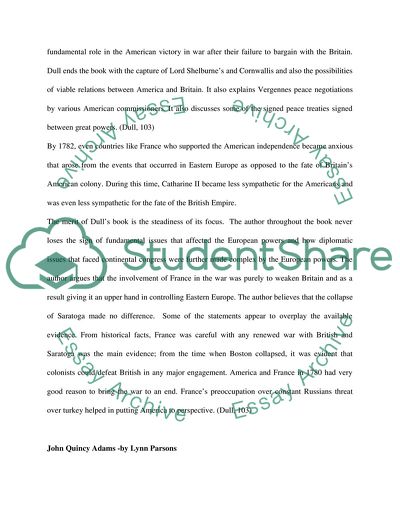Cite this document
(“A Diplomatic History of the American Revolution by Jonathan R. Dull Book Report/Review”, n.d.)
A Diplomatic History of the American Revolution by Jonathan R. Dull Book Report/Review. Retrieved from https://studentshare.org/history/1670085-a-collective-review-of-5-assigned-books-regarding-diplomacy
A Diplomatic History of the American Revolution by Jonathan R. Dull Book Report/Review. Retrieved from https://studentshare.org/history/1670085-a-collective-review-of-5-assigned-books-regarding-diplomacy
(A Diplomatic History of the American Revolution by Jonathan R. Dull Book Report/Review)
A Diplomatic History of the American Revolution by Jonathan R. Dull Book Report/Review. https://studentshare.org/history/1670085-a-collective-review-of-5-assigned-books-regarding-diplomacy.
A Diplomatic History of the American Revolution by Jonathan R. Dull Book Report/Review. https://studentshare.org/history/1670085-a-collective-review-of-5-assigned-books-regarding-diplomacy.
“A Diplomatic History of the American Revolution by Jonathan R. Dull Book Report/Review”, n.d. https://studentshare.org/history/1670085-a-collective-review-of-5-assigned-books-regarding-diplomacy.


